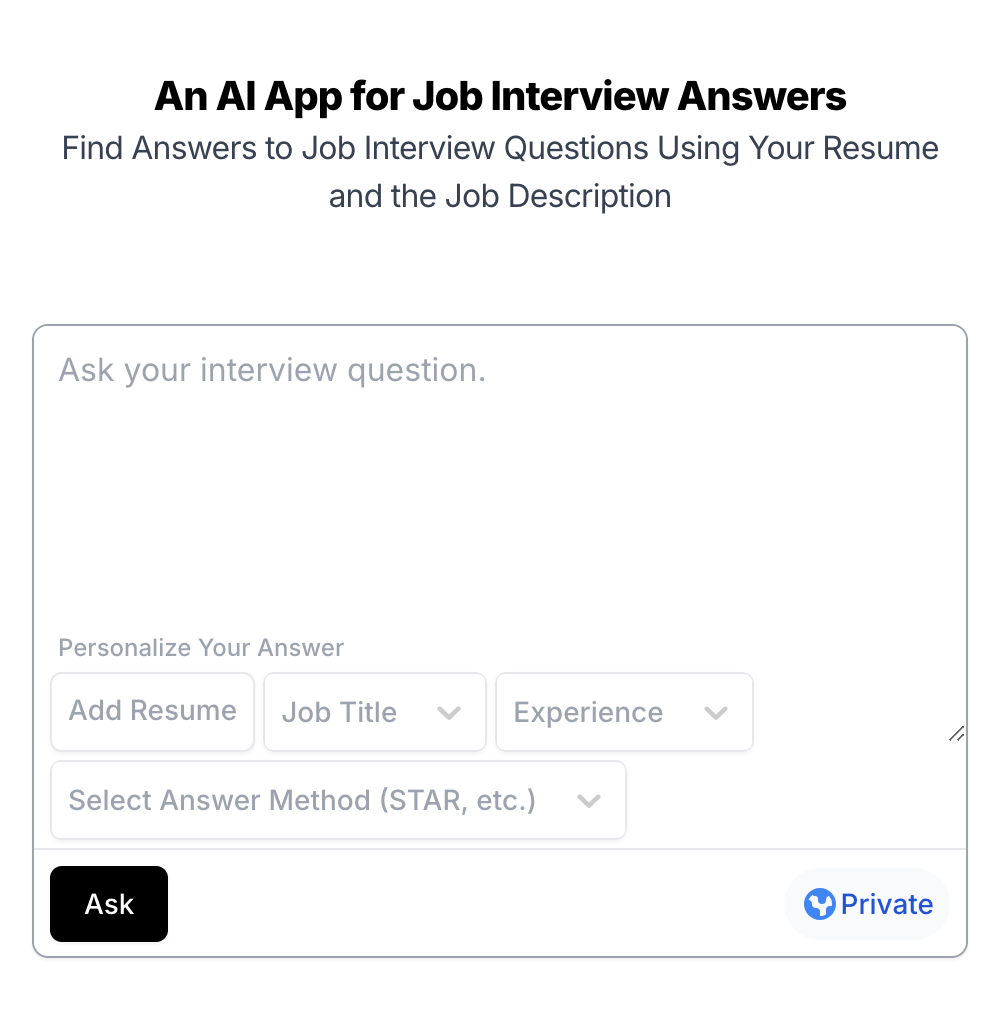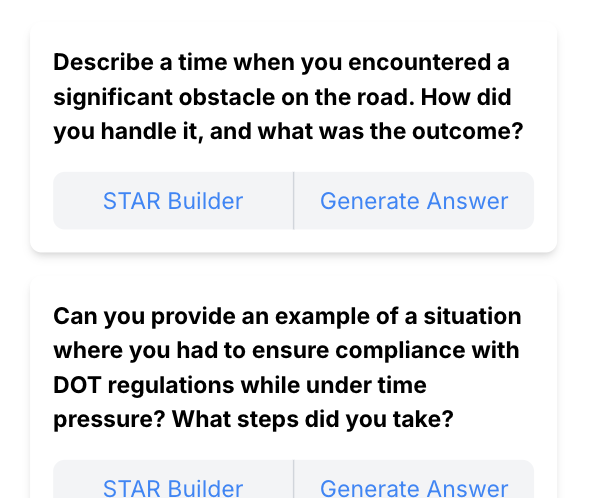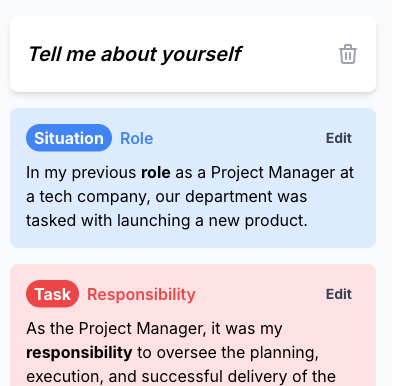
Interest Question Interview Question: What You Need to Know
Fri Aug 23 2024•Author: InterviewPro AI
Table of Contents
- What Are They?
- Common Examples
- Answer Length
- What to Avoid Saying
- Possible Follow-Ups
- More Follow-Up Questions
- When They're Asked
- Who Asks Them
- Why They Matter
- How to Answer Well
- Answer Structure
What Are They?
Interest questions ask about your motivation for the job and company. Employers use them to see if you're genuinely interested and if you fit with their culture. They want to know why you want to work for them and what you know about their organization.
5 Common Examples
- Why are you interested in this position?
- What do you know about our company?
- Why do you want to work here?
- What interests you most about this role?
- How does this position fit with your career goals?
Answer Length
Keep your answer to about 1-2 minutes. This gives you enough time to show your interest without talking too much. Your answer shows your enthusiasm and knowledge, so keep it focused and clear.
What to Avoid Saying
Don't say these things when answering interest questions:
-
Don't give very short answers Bad example: "I just need a job." Why it's bad: This doesn't show genuine interest in the company or role.
-
Don't focus only on personal gain Bad example: "I heard you offer great benefits and high salaries." Why it's bad: This suggests you're more interested in perks than the work itself.
-
Don't show lack of research Bad example: "I don't really know much about your company." Why it's bad: This indicates you haven't put effort into preparing for the interview.
-
Don't be negative about your current job Bad example: "I hate my current job and want to leave." Why it's bad: This can make you seem unprofessional or difficult to work with.
-
Don't give generic answers Bad example: "It seems like a good company to work for." Why it's bad: This doesn't show specific interest in the role or company.
-
Don't lie or exaggerate Bad example: "I've dreamed of working here since I was a child." Why it's bad: Insincerity can be obvious and damage your credibility.
-
Don't focus on irrelevant aspects Bad example: "I love that your office is close to my favorite restaurant." Why it's bad: This doesn't relate to the job or company's mission.
Show that you've done your research, you're genuinely interested, and you understand how you can contribute to the company.
Possible Follow-Ups
After you answer, the interviewer might ask more about your interest. They could ask about:
-
Specific aspects: They might want to know what parts of the job interest you most. Example: "Which aspects of our company culture appeal to you?"
-
Long-term plans: They could ask how this job fits into your career goals. Example: "How do you see this role contributing to your long-term career objectives?"
-
Company knowledge: They might ask for more details about what you know. Example: "What do you know about our recent product launches?"
-
Motivation: They could ask what drives your interest. Example: "What motivates you to work in this industry?"
-
Expectations: They might ask what you hope to gain from the role. Example: "What do you hope to learn or achieve in this position?"
5 More Follow-Up Questions
- "How does this role align with your personal values?"
- "What challenges do you think our company faces in the current market?"
- "How do you stay updated on industry trends relevant to this position?"
- "What skills do you hope to develop in this role?"
- "How do you think you can contribute to our company's mission?"
When They're Asked
You might hear these questions at different times:
-
Application Stage: You might be asked to write about your interest in your cover letter. Example: "Please explain why you're interested in this position in your cover letter."
-
First Phone Call: You might get basic interest questions to gauge your enthusiasm. Example: "What made you apply for this position?"
-
First Interview: This is when you'll probably get most interest questions. Example: "Why do you want to work for our company specifically?"
-
Later Interviews: You might get more in-depth questions about your interest and fit. Example: "How do you see yourself contributing to our company's goals?"
-
Final Stages: They might reconfirm your interest before making an offer. Example: "Now that you know more about the role, are you still interested in the position?"
These questions can come up at any time, so be prepared to discuss your interest throughout the process.
Who Asks Them
-
HR People: Example: "What attracted you to our company?"
-
Hiring Managers: Example: "Why do you think you'd be a good fit for this role?"
-
Team Leaders: Example: "What interests you about working with our team?"
-
Potential Coworkers: Example: "What excites you most about potentially joining our team?"
-
Top Managers: Example: "How do you see yourself contributing to our company's vision?"
-
Outside Recruiters: Example: "What are you looking for in your next role?"
The person asking usually wants to ensure you're genuinely interested and a good fit for the company.
Why They Matter
These questions show your motivation, knowledge of the company, and how well you might fit in. They give employers an idea of how committed you'd be to the job and company. They use these questions to gauge your enthusiasm and whether you've done your research.
How to Answer Well
- Research the company thoroughly
- Connect your skills and experience to the role
- Show enthusiasm for the company's mission or products
- Explain how the role fits your career goals
- Be specific about what attracts you to the company
Answer Structure
Use this plan to organize your thoughts:
- Express enthusiasm: Start with a positive statement about the company or role
- Show knowledge: Mention specific things you know about the company
- Connect to your skills: Explain how your abilities match the job
- Discuss fit: Talk about how you align with the company culture
- Look forward: Mention how you hope to grow or contribute in the role
Interest questions let you show your enthusiasm and knowledge about the company and role. Use them to demonstrate why you're the right person for the job. Your answer helps employers understand your motivation and fit, so focus on showing genuine interest and how you can contribute to the company's success.
Can't find what you're looking for?
Try our AI-Powered Interview Preparation Tools
Prepare for your job interview with our AI tools. Tailored answers, custom questions, and STAR method responses.


